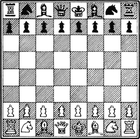Politics Boost Huawei, ZTE In 4G Mega Award

China’s award of more than half of a massive new telecoms contract to domestic firms despite strong competition from global rivals sends a bad signal for Beijing’s commitment to fair trade, appearing to show that political factors play a significant role in such commercial decisions.
While it’s understandable that China wants to support its homegrown firms in their quest to become global leaders, such favoritism could easily lead to complaints by foreigners who feel they open their markets to Chinese products but don’t receive reciprocal treatment. This current case is especially sensitive, since the European Union already suspects Chinese telecoms equipment makers like Huawei, ZTE (HKEx: 763; Shenzhen: 000063) and Datang of getting unfair state support through policies like government grants and tax credits.
ZTE and Huawei were the big winners in the latest bidding for $3.2 billion in contracts to build a national 4G network by China Mobile (HKEx: 941; NYSE: CHL), the world’s largest wireless carrier with 745 million subscribers. Huawei led the field with 25 percent of the awards, followed by ZTE with 20 percent. Datang won 10 percent, giving the domestic firms around 55 percent of the total awards, according to media reports citing industry sources. (English article; Chinese article)
By comparison, results for the 3 major foreign bidders were relatively weak. France’s Alcatel-Lucent (Paris: ALUA) garnered 13 percent of the awards, followed by 11 percent each for global leader Ericsson (Stockholm: ERICb) and Finnish-German firm Nokia Siemens Networks. The results were similar to previous awards for current 3G networks, which saw ZTE, Huawei and Datang collectively win about 62 percent of contracts.
Some might say the Chinese firms fared relatively better because of their stronger commitment to a homegrown technology being used in by China Mobile in its 3G and 4G networks. While that may be the case for 3G, the big foreign suppliers have recently placed stronger emphasis on the technology, called TD-LTE, as it gains more global acceptance in 4G.
At the same time, Huawei and ZTE are both facing stiff headwinds in the lucrative Western European market due to complaints of unfair state support. As a result of those complaints, the EU is reportedly weighing a formal anti-dumping investigation into Huawei and ZTE, which could result in punitive tariffs that could severely hurt their business in countries like Britain, France and Germany.
Against that backdrop, many industry watchers believed a weak showing by the European firms in these latest 4G awards might reflect Beijing’s displeasure at the EU, since China Mobile is a state-run firm controlled by the central government. This latest result seems to show that politics do indeed play a role in the process, and that factors like trade friction may cause foreign companies to lose business in similar bids for future contracts from big state-run firms.
To avoid inflaming an already tense situation, Beijing should encourage major state-run firms like China Mobile to make their decisions purely based on commercial considerations and avoid results that look too much like formulas based on politically-motivated quotas. Otherwise China could find itself coming under increasing criticism of unfairly favoring domestic firms at the expense of big multinationals, which will only lead to heightened tensions with its major trading partners.
Bottom line: China Mobile’s major contract awards to Huawei and ZTE show that politics still play a role in commercial decisions by big state-run firms.
Related posts:
- Suggestion To China: Get Proactive On Telecoms Dispute Huawei Lobbies For Rivals, Hires Ex-Nokia Exec
